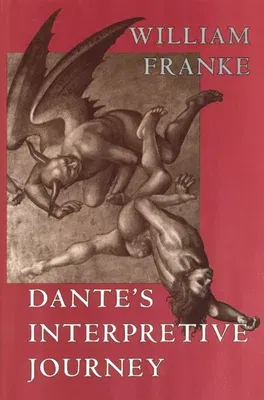William Franke
(Author)Dante's Interpretive Journey, 1996Hardcover, 15 April 1996

Qty
1
Turbo
Ships in 2 - 3 days
In Stock
Free Delivery
Cash on Delivery
15 Days
Free Returns
Secure Checkout

Part of Series
Religion and Postmodernism
Part of Series
Religion & Postmodernism (Hardcover)
Print Length
261 pages
Language
English
Publisher
University of Chicago Press
Date Published
15 Apr 1996
ISBN-10
0226259978
ISBN-13
9780226259970
Description
Product Details
Author:
Book Format:
Hardcover
Country of Origin:
US
Date Published:
15 April 1996
Dimensions:
23.47 x
15.72 x
1.98 cm
ISBN-10:
0226259978
ISBN-13:
9780226259970
Language:
English
Location:
Chicago, IL
Pages:
261
Publisher:
Weight:
521.63 gm